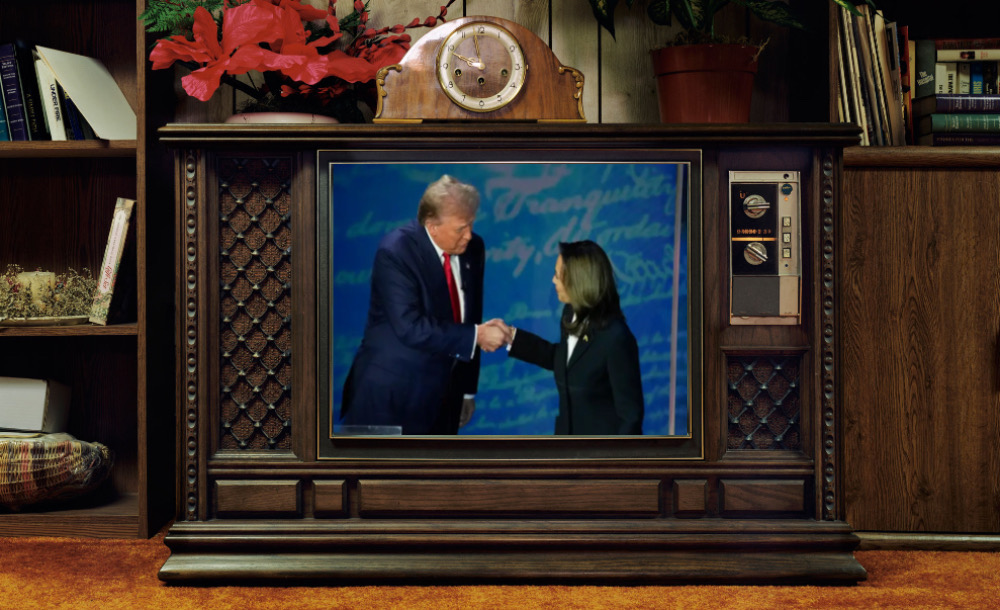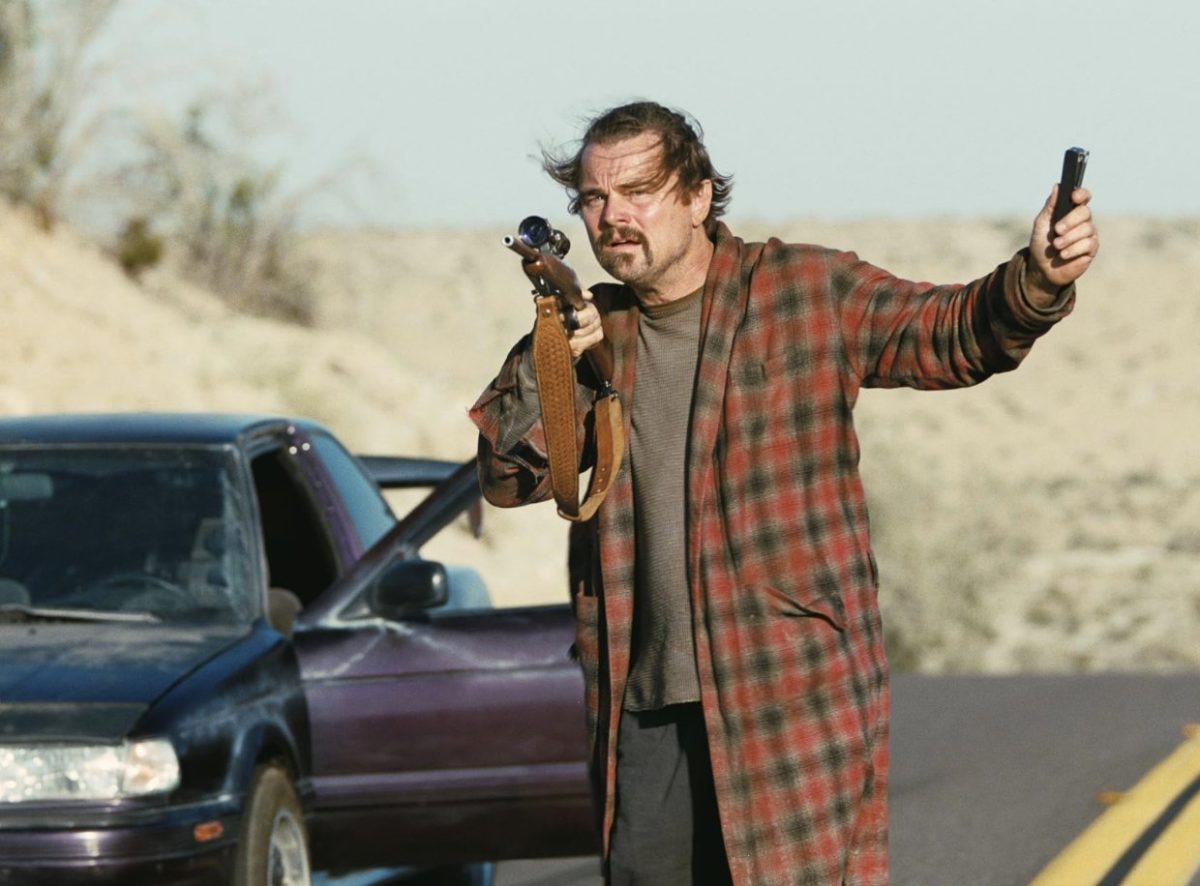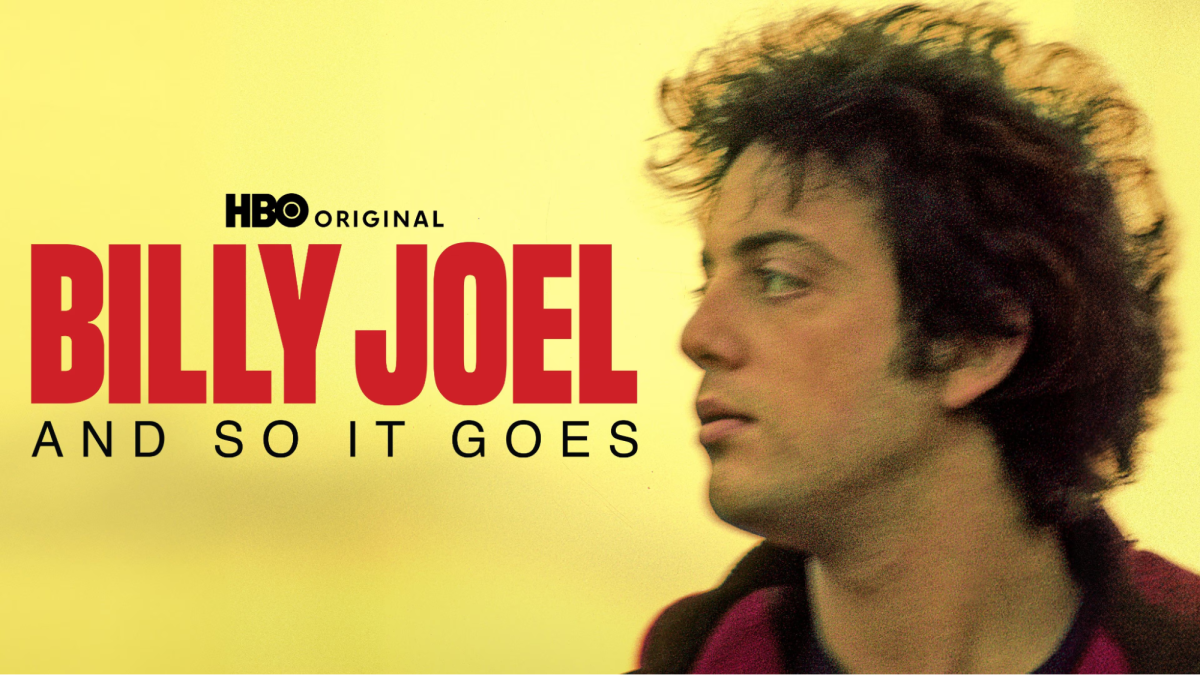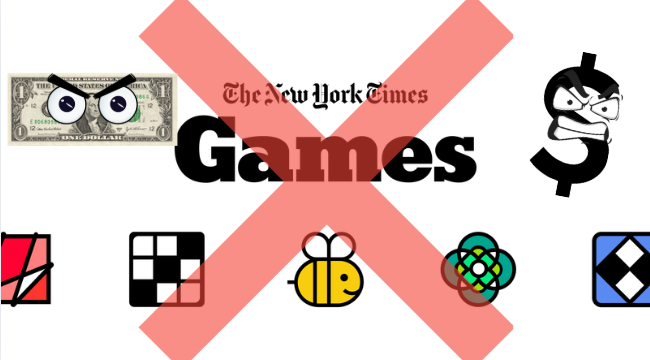Tuesday night, like 67 million other Americans with nothing better to do, I sat on my sofa, arms crossed and eyes narrowed like I’m not watching the TV but judging it. I’m there to watch the nastiest bloodbath of the year. I scroll past Gladiator playing on AMC. Nope. I’m heading for ABC. I’m here to watch the debate between Donald Trump and Kamala Harris, the beginning to an arduous few months of presidential race, and the latest installment in the great American institution of the presidential debate.
This time I’m not watching as a passive onlooker but as something of a Mickey Mouse analyst, really paying attention to the nitty-gritty policy stuff. Beside me are my notepad and the silkiest ballpoint pen I own. I need a story to write for my school newspaper. I wasn’t sure what I’d write about, but I figured, 90 minutes of political discussion must lead me somewhere.
Before long, a kind-of nausea passed over me like I’d just ingested something gluttonous. Here’s nonstop 90-second intervals of regurgitated campaign slogans, blanket statements, fallacies galore and cherry-picked statistics with no care for interpretation or contextualization. I won’t cite specific moments and I hesitate to even mention the candidates’ names again, because then this becomes something that it is not. This isn’t an indictment of Trump or Harris, or the banal non-stance of proclaiming “I hate both.” This isn’t the bajillionth think piece about Trump-era politics or political polarization. In fact, let’s look back to the good-old days of American politics. Forty-odd years ago, incumbent president Jimmy Carter was hanging on for dear life at the polls. Just one week out from the election, Carter faced off against his challenger, Governor Ronald Reagan, in the most viewed presidential debate of the 20th century.
At one point in the debate Jimmy Carter began, “…Now, we have an opportunity to move toward national health insurance, with an emphasis on the prevention of disease, an emphasis on out-patient care, not in-patient care; an emphasis on hospital cost containment to hold down the cost of hospital care for those who are ill, an emphasis on catastrophic health insurance, so that if a family is threatened with being wiped out economically because of a very high medical bill, then the insurance would help pay for it. These are the kinds of elements of a national health insurance, important to the American people. Governor Reagan, again, typically is against such a proposal.”
You’ve probably never heard this excerpt from Carter, but you’ve certainly heard what followed. “There you go again,” Reagan quipped, in what would become one of the most famous debate moments in American history. Reagan disarmed Carter’s entire argument in the matter of four words. Showbiz Reagan understood something that farmboy Carter didn’t. He understood he was taking part in something as theatric as any Old Hollywood film production he’d ever been a part of. He knew just how to exploit it. “Are you better off than you were four years ago?” he repeatedly asked, rhetorically mauling Carter.
When two men running for the most powerful position in the country are pit against each other in a live debate where a “winner” and “loser” are declared by means of eyeball test by millions of laymen, rationale takes a back seat to rhetoric, and the truth, whatever that means, is expendable. That’s how you win the debate. Don’t hate the player, hate the game– and to hell with that game.
I took my thoughts to social studies teacher Pankaj Sharma, an avid proponent for political participation who never fails to remind his students to tune into the debates. So I told him how I felt, and asked why we don’t just end this reductive, insufferable spectacle once and for all? He shared much of my sentiment, but brought to my awareness an underlying importance at the core of it.
“Voters want to see the two candidates side by side to evaluate them,” Sharma said. “One counter to your point would be the June 27 debate, which turned out to be very consequential, and changed the course of the race and American political history. One of the candidates struggled so much that he was forced to step down.
“I think the challenge would be, what’s a better way for voters to compare the candidates in an unscripted setting? And I don’t know what the answer is.”
I don’t know either. The presidential debates that landmark election cycles are one of many rusty, ill-fitted cogs in that big old American political system. But they satiate something burning in the voter populace, some kind of primal hunger for competition, and a susceptibility to persuasion written in the very code of human nature. Plus, they line executives’ pockets with cold, hard money. So, a booming inner-dialogue, something like Ned Beatty in Network, interrupts and overrides whatever righteous frustration I may have.















